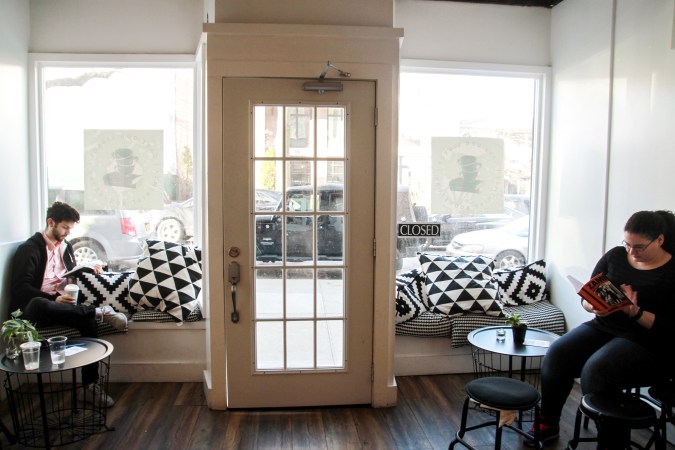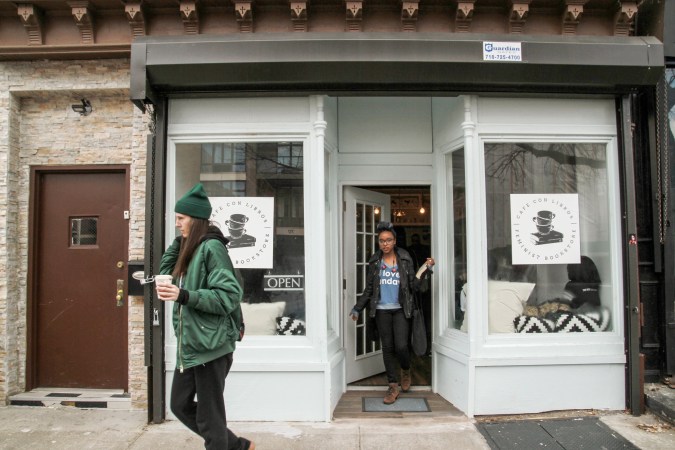With academic thought lining the shelves and Celia Cruz and Aretha Franklin dancing in your ears, Cafe Con Libros is hood feminism. Owner Kalima DeSuze hopes the space and its monthly book club will serve as a source of community building in the middle of a gentrifying Brooklyn neighborhood.
Growing up a six-minute walk from the bookstore, she saw quick fingers working inside the African hair braiding spots and people gathered at the local convenience store up and down Franklin Avenue. These sights have dwindled as the landscape of her mostly Black and low-income neighborhood has shifted.
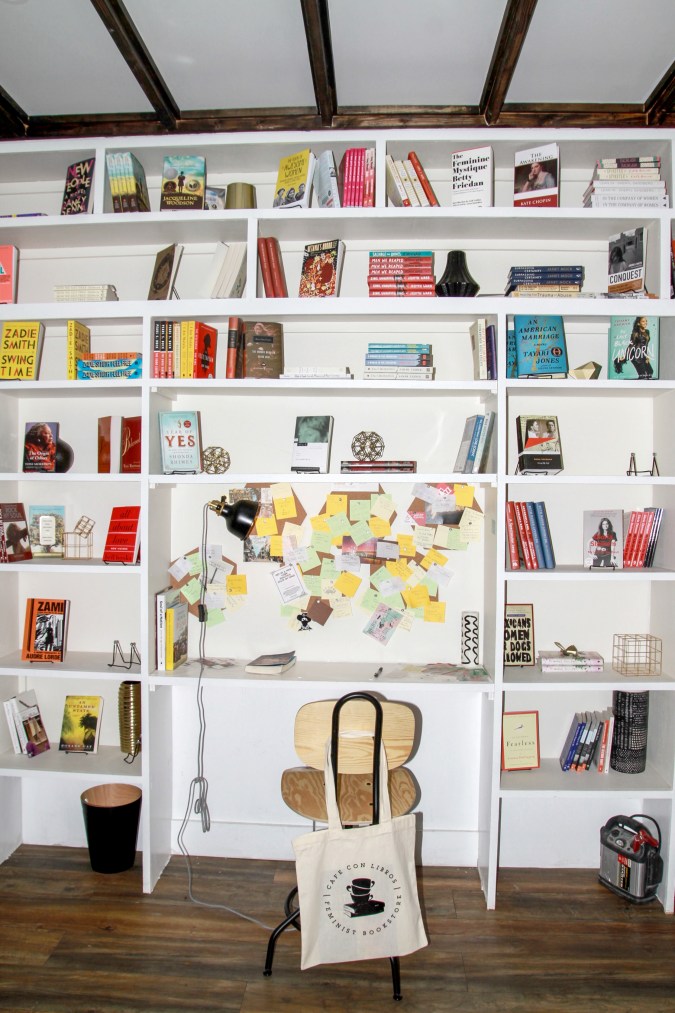
From 2000 to 2015, the median rent in North Crown Heights/Prospect Heights has gone from $870 to $1,230, according to a study by NYU’s Furman Center for Real Estate and Urban Policy. During this time the Black population saw a 23 percent decrease, while the Asian, Latino and white population grew by 2.5, 5 and 14 percent, respectively. For DeSuze, it’s disheartening that the community feels it no longer belongs in a place that’s historically its own.
Of course, she recognizes the role she’s playing in the neighborhood’s gentrification. Opening up a cafe is a classic marker of “well there goes the neighborhood,” but with Cafe con Libros, she’s inviting those usually treated like the “other” to come inside. That’s why books like The Crunk Feminist Collection and Issa Rae’s The Misadventures of Awkward Black Girl diversify the narratives of what feminism looks like. “I aim to bring the folks together who would normally not feel comfortable with one another. This is what I want to see,” she tells me as she gestures to the room.
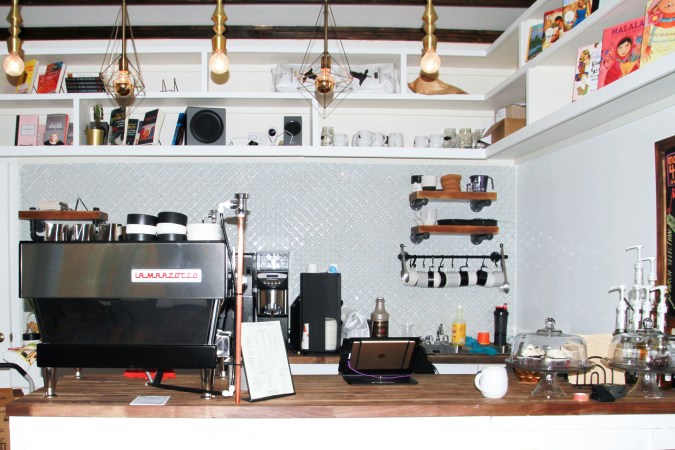
Sitting on opposite sides nestled in the reading nooks under ceiling-scraping windows are three women of different backgrounds, reading and typing away on laptops. Moments ago, a man in a leather jacket walked in for a coffee and quick hello.
“I want to see multiple identities being comfortable sitting and hanging out with one another and connecting across differences,” she continues.
The Afro-Latinx-owned feminist bookstore and coffee shop, located on 724 Prospect Place, opened on December 23, 2017. It started gaining traction after a customer’s tweet went viral. “One of my friends had to show me and explain,” DeSuze says with a laugh. “I didn’t even know what it meant to go viral.”
Close to 200 woman-penned books color in the shop’s white walls. The bookstore, with natural light pouring into its corners from the mostly glass storefront, is about two arm spans wide. The air’s brimming with music loud enough to get you dancing in your chair, but still quiet enough to get work done.
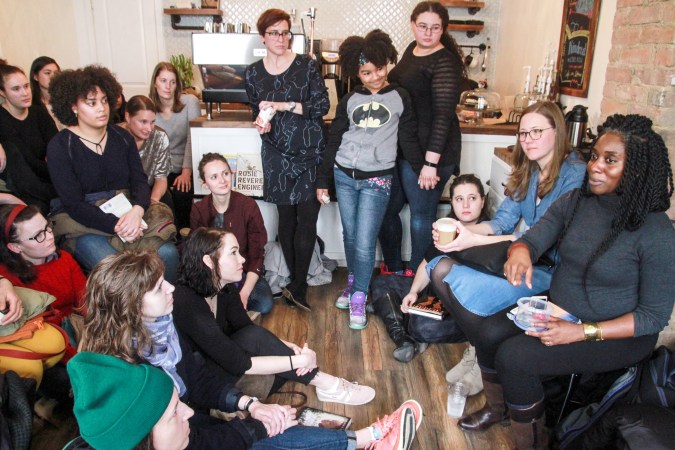
Children’s books – many depicting the legacies of women such as activist and singer Nina Simone and Supreme Court Justice Ruth Bader Ginsburg – and toys occupy space on one wall. The other walls feature a combination of books DeSuze has read and aspires to read, as well as recommendations customers left on yellow and green notecards on hexagon cork boards.
A silver espresso machine takes up almost half the back counter where customers order their pick of coffees, teas, and the pastries visible under a glass cake stand cover. Everything’s deliberately priced $4 and below, and purchased from locally owned businesses.
While she’s received overwhelmingly positive feedback, DeSuze has also seen pushback from those associating feminism with man hating or who don’t relate to the academic language employed in these texts. One person told her, “Oh, that’s for white folk, that’s not for us.”
But as DeSuze says, the feminism of local communities and in academia is fundamentally the same. There’s an idea that feminism has to follow a specific language and look a certain way, but the first forms of feminism she saw are familiar to many: A sister, aunt, grandmother – or in her case, her mother – finding the sand, the water, and the sun to bake bricks and build herself. Brick by brick.
“I was introduced to feminism just naturally, organically by Black women in the hood, where I’m from, doing things for themselves,” she says. “Kicking doors down and serving their worth and their value.”
